THE JAMMED TRUE STORIES OF HUMAN TRAFFICKING BLOG
The aim of this blog is to uncover and present
THE JAMMED is a feature film inspired by court transcripts about sex slavery and deportation in
This is a call for your stories.
Sunday, September 28, 2008
SEX SLAVE IN BOSNIA
By Nidzara Ahmetasevic, Sarajevo
March 18, 2003 – (IWPR'S BALKAN CRISIS REPORT) The Moldovan woman is only 20, but she looks far older. "My boss paid a thousand euro for me," she told IWPR in excellent Bosnian. "It was just like buying a t-shirt - you turn it around, look it over and if you like it, you buy. That's how it was with me."
Elena, not her real name, she shows no emotion as she speaks - as if she has already accepted her fate.
Girls were sold for prices ranging from around 500 to 1,500 euro – the amount treated by their new pimps as a debt they then had to repay through forced, or willing, prostitution.
The hours were long. "I had to work every night, " she said. "The clients paid my boss 30 euro for an hour with me, or 128 euro for a whole night. On Fridays or Saturdays I had as many as 15 customers."
Elena is one of thousands who have experienced a similar fate. A little over a year ago, she went to the West in hope of earning money through prostitution but instead she was "sold" and then smuggled into Bosnia-Herzegovina, where she was forced to work in one of the country's numerous nightclubs.
She escaped, but then spent 20 days in detention for possession of false documents. Upon her release, she was handed over to the International Organisation for Migration, IOM. While waiting to return home to Moldova, Elena lives in one of the body's six safe houses scattered across the country.
Under IOM rules, she says, she cannot reveal her own name, or the names of the people she worked for. Nor can she leave her safe house unaccompanied.
According to non-governmental organisations, NGOs, and United Nations experts, human trafficking appeared in Bosnia-Herzegovina in 1995, at the end of the war. Women and girls, mostly from Eastern Europe, but from Bosnia as well, were kidnapped or lured from home by the promise of well-paid work.
But then they were treated as little more than sex slaves until their supposed debts were paid off. Those who disobeyed the brothel owners were beaten or even tortured.
With its porous frontier and poorly-regulated administration, police and judiciary, Bosnia-Herzegovina became a safe haven for human traffickers and pimps, whose customers included local police, foreign peacekeeping troops and members of international organisations.
Tighter surveillance, increasingly frequent raids on bars and nightclubs, strengthened border controls, and a vigorous campaign against trafficking have combined to reduce the number of brothels in the past six months. Even so, few traffickers have been convicted.
"Local corruption and the complicity of international officials in Bosnia have allowed a trafficking network to flourish," the organisation Human Rights Watch, HRW, claimed in a recent report on the problem.
Elena's story confirms the report's conclusion. She arrived in Bosnia on April 4, 2002, to escape a life of poverty in her home country. "A girlfriend had been to Bosnia and when she returned to Moldova she told me she had worked as a waitress and that you could earn good money there," she told IWPR.
She and her two younger sisters had suffered abject misery in their homeland, as their mother was unemployed and their father alcoholic.
With only primary education qualifications, Elena had struggled to find a job to support at least her sisters. Finally, she was introduced to some people who promised to get her into Bosnia.
With fake Romanian papers, an ID card and a passport, Elena traveled first to Romania, where she was held in a house with three other girls. A few days later she was transported by boat to Belgrade, where she was bought by a local criminal called Dragan.
"I was with several other girls in a house in Belgrade. Various people came to inspect us. On some days, six or seven people came," she recalled.
"We presented ourselves in front of them with very few clothes on. They would sit there and the five of us would stand in front of them. When you went out there, you had to show what your breasts, waist and hips looked like.
"You had to convince them you would attract customers for them. They didn't take you if you had short hair. They watched out for scars, bad teeth or evidence of slashed wrists, because some girls do that. The new boss and the seller would then agree on a price."
Elena says she accepted her fate from the start. "All that time I thought this had to happen," she said. "I had left home for the first time and had tried to reach a place I didn't know. I badly needed money."
Elena was then dispatched to Bosnia, smuggled across the river by boat. The brothel-owner who had bought her from Dragan took her documents and gave her a Bosnian ID card.
"I then shared a house with 15 girls from different countries, including Romania, Bulgaria and Moldova. One was from Hungary," she said. " Some were younger and some older than me, and some had no documents at all. The house had four rooms, and the bar where we worked was a little further away. The boss kept his eye on us all the time."
Elena says all sorts of customers patronised her bar, including locals, soldiers from the NATO-led Stabilisation Force, SFOR, and even local policemen.
"The police would come to the bar, pay and take us to a room. The foreigners were just the same. Our boss always found out if any of the girls had asked them for anything. It was a vicious circle, because how could I ask people for help when they had paid my boss to have sex with me?"
After almost a year Elena escaped, and she was eventually taken to an IOM shelter. "The bar where we worked has closed," she said. "I don't know what happened to the boss and the girls. I want to go home now."
But going home is not going to be easy. After they heard of her fate, her family would not take her back. "When I called my mother, I could not lie and I admitted I was a prostitute. She told me I couldn't go back home." When she talks of her mother, Elena's stony facade finally begins to crack.
Elena now plans to stay at a friend's place when she returns home but is still worried about her future. "I'm scared of what will happen to me when I get back," she said.
"First I have to obtain regular papers so I don't have problems with the police. I want a husband and children. But I can never tell my children what happened to me, as I don't want them to know what their mother was like."
She holds herself partly to blame for her experience. "I did try to leave and do things differently and that's why it all happened," she said. "People in Moldova are very poor, and it's difficult to find a job and make ends meet there.
"I wanted to tell IWPR this because I feel better talking about it. Some girls will never discuss it, but I think you only end up crying more if you try to bottle it up and not tell anyone."
Nidzara Ahmetasevic is a freelance journalist from Bosnia.




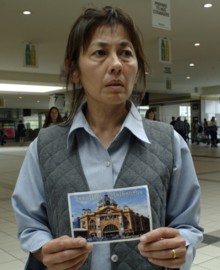
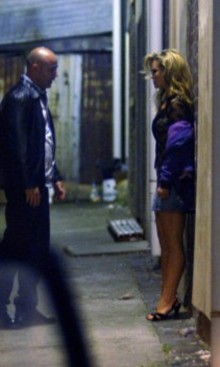
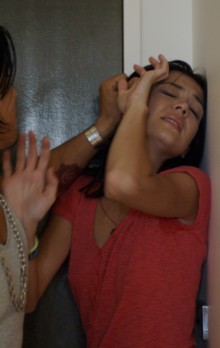
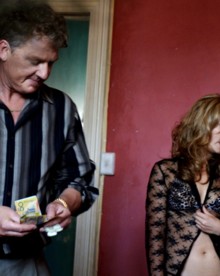
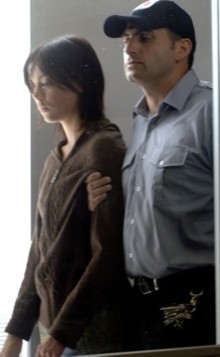
4 comments:
thats what is the fruit of christianity
come to islam
protector of women honour and dignity
nice blog.
Chinese
Escorts
nice post thanks for share.
Luxury Escort service
hey! I love this post.
escortjob amsterdam
escortwork amsterdam
Post a Comment